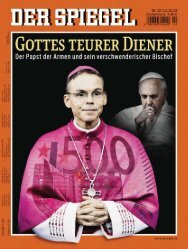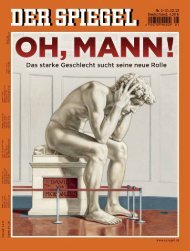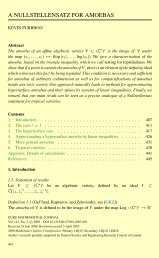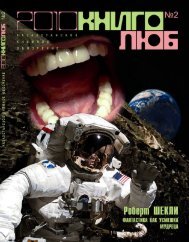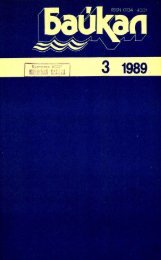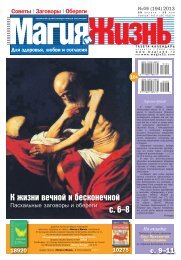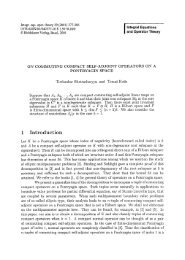home entertainment 2007
home entertainment 2007
home entertainment 2007
Create successful ePaper yourself
Turn your PDF publications into a flip-book with our unique Google optimized e-Paper software.
RECORD REVIEWS<br />
RECORDING OF THE MONTH<br />
When, following the superb Wide Angels (2003), recorded<br />
with his 15-piece Quindectet, Michael Brecker<br />
decided to end his long-term contract with<br />
Impulse!/Verve and hook up with Heads Up<br />
International, part of his goal was to adventurously expand his<br />
repertoire in a jazz direction more oriented toward world<br />
music—specifically, an album influenced by Bulgarian music,<br />
which had forced him to harmonically reconceptualize how he<br />
played his tenor sax. However, his Bulgarian speed-jazz project,<br />
which was to include Bulgarian artists, was shelved in 2005<br />
when Brecker was stricken with the rare bone-marrow cancer<br />
Myelodysplastic syndrome (MDS), which ultimately led to his<br />
death, at 57, in early January <strong>2007</strong>.<br />
Despite long periods of complete<br />
inactivity enforced by the severity of<br />
MDS, Brecker found pockets of time<br />
to begin working on a compositional<br />
journey that would entail the enlistment<br />
of some trusted longtime collaborators,<br />
including guitarist Pat<br />
Metheny, pianist Herbie Hancock,<br />
and drummer Jack DeJohnette.<br />
Pianist Brad Mehldau alternates with<br />
Hancock, and bassist John Patitucci<br />
anchors the entire album. Initially<br />
titled This Just In, this appropriately<br />
changed to Pilgrimage following<br />
Brecker’s death, the CD, released four<br />
months after that passing, is Brecker’s<br />
brilliant final hurrah, a nine-tune swan<br />
song written and recorded in his last<br />
few months. Well aware that this<br />
could indeed be his ultimate outing,<br />
Brecker meticulously composed<br />
MICHAEL BRECKER Pilgrimage<br />
music that teems with complex arrangements and a soulful<br />
urgency in which every note counts.<br />
Brecker didn’t quite complete the project. He recorded and<br />
mixed all of the tracks but was unable to master them, a task<br />
painstakingly carried out after his death by coproducers<br />
Metheny, Gil Goldstein, and Steve Rodby, executive producer<br />
Darryl Pitt, and engineer Joe Ferla. Their labor of love and dedication<br />
to detail makes Pilgrimage a sonic treat that wholly reveals<br />
the crystal in Brecker’s clarion sound. Also impressive is the<br />
impeccable instrumental mix: each player is given equal weight,<br />
most notably Patitucci’s affective mélange of bass lines and<br />
grooves. Case in point: his slow, sad steps on the melancholic<br />
ballad “When Can I Kiss You Again.”<br />
The performances are inspired. All participants rise to the<br />
occasion, obviously fired up that Brecker had new musical ideas<br />
and was healthy enough to express and document them.<br />
Although Pilgrimage features, in essence, a studio supergroup, the<br />
cumulative effect is that of a celebratory band with a deeply<br />
ingrained improvisational chemistry. The playing is lofty—everyone<br />
listens and responds, spurring each other on and clearing<br />
the sound space for instrumental showcasing.<br />
On many tracks, the operative word is uptempo. The album<br />
Michael Brecker, tenor sax, EWI; Pat Metheny, guitars;<br />
Herbie Hancock, Brad Mehldau, keyboards; John<br />
Patitucci, bass; Jack DeJohnette, drums<br />
Heads Up International HUCD 3095 (CD). <strong>2007</strong>.<br />
Michael Brecker, Gil Goldstein, Steve Rodby, Pat<br />
Metheny, prods.; Darryl Pitt, exec. prod.; Joe Ferla,<br />
eng. DDD. TT: 77:57<br />
Performance ★★★★ 1 ⁄2<br />
Sonics ★★★★ 1 ⁄2<br />
opens with the robust “The Mean Time,” which features<br />
Hancock’s unmistakable dashes across the keys, Metheny’s softtoned<br />
but molten droplets of glee, and Brecker’s fine-tuned<br />
excitement. “Anagram” has irregular tempos, but its gallop carries<br />
the day as Brecker ecstatically wafts articulate leads above<br />
Patitucci’s imaginative bass lines, which move from a walking gait<br />
to reflective pulses. In “Tumbleweed,” Metheny leaps, rolls, and<br />
somersaults on his synth guitar, and rocks with a trace of funk.<br />
While Pilgrimage afforded Brecker the rhythmic license to juxtapose<br />
sounds and colors in his time-shifting flights, the saxophonist<br />
also gave himself ample space to muse, including his<br />
inspired end statement on “Cardinal Rule,” and his moving prelude<br />
on “Pilgrimage,” on which<br />
Hancock dances on electric keys.<br />
The most remarkable characteristic<br />
of Pilgrimage is how potent and flawless<br />
Brecker’s performance is, given how<br />
ill he was. He’s absolutely fierce in his<br />
blowing, wailing on “Tumbleweed”<br />
and, on the playful, midtempo “Loose<br />
Threads,” elatedly sketching an angular<br />
architecture while bursting at the<br />
seams with gravity-defying buoyancy.<br />
Purportedly, after completing one<br />
tune in the session, Hancock<br />
expressed amazement at Brecker’s<br />
strength and stamina, then joked,<br />
“Hey, I thought you’ve been sick.” In<br />
an interview, Mehldau observed that<br />
Brecker’s vital and at times intense<br />
playing didn’t reflect ill health. In reality,<br />
according to those close to the sessions,<br />
much of the time Brecker was<br />
playing in pain. You can hear and feel<br />
that in his horn.<br />
Over time, Michael Brecker will be counted among the few<br />
giants in the jazz pantheon as the singular-voice tenor saxophonist<br />
who took the baton from his mentor, John Coltrane.<br />
Throughout his career Brecker made many excellent recordings,<br />
beginning in the mid-’70s as a member of the Brecker Brothers,<br />
the seminal skunk-funk fusion band. Later, during his stint at<br />
Verve, he sought to establish a closer musical connection to<br />
Coltrane, first by linking up with Trane’s pianist, McCoy Tyner,<br />
for his 1995 masterwork, Tales from the Hudson. He then furthered<br />
the connection by employing Trane’s drummer, Elvin Jones, for<br />
Time Is of the Essence (1999). The Nearness of You: The Ballad Book<br />
(2001) was inspired by Coltrane’s classic Ballads. Other Coltrane<br />
projects ensued, including Brecker’s collaboration with Hancock<br />
on Directions in Music: Celebrating Miles Davis & John Coltrane (2002,<br />
Verve), and the Saxophone Summit project with Joe Lovano and<br />
Dave Liebman, which focused on Coltrane’s later material and<br />
resulted in Gathering of Spirits (2004, Telarc).<br />
While he carried on the Coltrane tradition in a respectful way,<br />
Michael Brecker did so in his own distinctive voice. That voice is<br />
in full frontal view on Pilgrimage, a captivating disc of jazz elevated<br />
to a fine art, and the apex of a too-short career. —Dan Ouellette<br />
www.Stereophile.com, May <strong>2007</strong> 119




